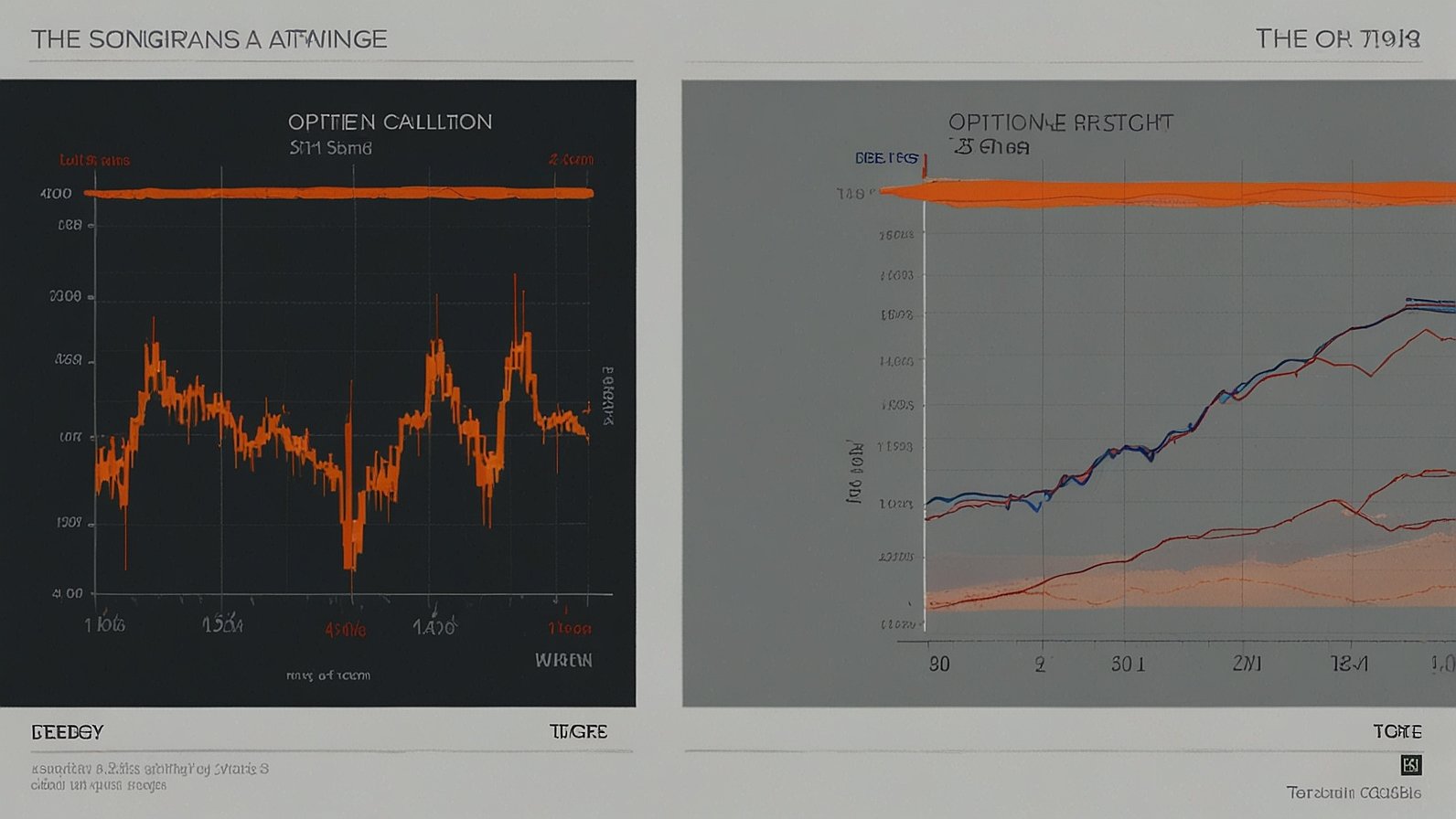Have you ever bought a call or put option with a rock-solid thesis, watched the underlying stock move in your favor, and still found your position struggling to turn a profit? You’re not alone. That frustrating experience is often the work of a powerful, invisible force every options trader must understand: time decay, also known as Theta.
Forget just predicting direction. The most successful traders know that mastering time itself is what separates a hopeful gamble from a calculated strategy. This is exactly the kind of market reality we dissect in the educational deep-dives at grossoptions.com, where our mission is to translate complex concepts into actionable insights for self-directed traders.
Key Concepts You Can’t Afford to Ignore
Let’s break down the core pillars of time decay. Think of these as the fundamental rules of the game.
- Time Decay (Theta) Isn’t Your Enemy—It’s a Force to Be Understood. Theta is the Greek that measures how much an option’s price will decrease each day as time passes, all else being equal. It’s the financial equivalent of a melting ice cube. For option buyers, it’s a constant headwind. For sellers, it’s a tailwind.
- It’s All About the Clock. The most crucial thing to remember is that time decay isn’t linear. It accelerates as an option approaches its expiration date. The final 30 days are where the melt happens fastest, which is why buying short-dated options is such a risky game.
- Implied Volatility is Theta’s Partner in Crime. Often, high Theta coincides with high Implied Volatility (IV)—like before an earnings report. You might pay a high premium for that option, but you’re also paying for a lot of “hope” that will rapidly evaporate after the news, regardless of the stock move. This one-two punch is called “IV Crush.”
How This Works in a Real Trading Scenario
Let’s make this practical. Imagine Company XYZ is reporting earnings in one week. The stock is at $150, and the atmosphere is buzzing. You’re tempted to buy a weekly $155 call option for $3.00, betting on a pop.
Here’s what Theta is doing behind the scenes:
The Accelerating Erosion of Theta
| Days to Expiration | Option Premium | Theta’s Estimated Daily Erosion |
|---|---|---|
| 30 Days | $3.00 | -$0.05 |
| 15 Days | $2.20 | -$0.08 |
| 7 Days (Earnings Day) | $1.50 | -$0.15 |
| 1 Day | $0.80 | -$0.30 |
Even if XYZ stock jumps to $152 right after earnings (a move in your direction!), the option has lost so much value to time decay that it might still be a loser. The pop wasn’t big enough to overcome the accelerated melt. This scenario is a painful rite of passage for many new traders.
Dispelling Common Myths and Answering Your Questions
A common myth is that options are just too complex for the average person. The truth is, complexity is a choice. You don’t need to understand every advanced strategy on day one. Start by mastering the foundational forces—like Theta—and you immediately gain an edge over those who are just blindly buying calls and puts.
You might be wondering, “If buying options is so hard because of Theta, how do I ever win?”
The answer lies in flipping the script. Instead of always being the option buyer (and fighting time decay), you can learn to be the seller—the one who collects that time premium. Strategies like selling cash-secured puts or credit spreads allow you to harness Theta’s power, making time your ally.
Your Next Steps: 3 Ways to Implement This Today
Knowledge is only power if you use it. Here’s how to put this into practice immediately.
- Investigate Your Watchlist: Open your brokerage platform and pull up the options chain for a stock you follow. Simply observe the Theta value for options with different expiration dates. Notice how it increases as you get closer to expiration.
- Paper Trade a Theta-Positive Strategy: Instead of buying a call, try paper trading (simulating) the sale of a cash-secured put. Watch how the position behaves over a week, even if the stock price doesn’t move much. You’ll see Theta working in your favor.
- Plan Your Next Move with Confidence: Before your next potential trade, ask yourself: “Am I buying or selling time decay? How does Theta impact my breakeven point?” This simple question will fundamentally change your approach.
Ultimately, understanding Theta transforms you from a speculator into a strategic trader. What’s the biggest “aha!” moment you’ve had while learning about the options Greeks?
You May Also Read: Duaction: A Faster Path to Real-World Skills | Guide
FAQs
Q: Is options trading suitable for beginners?
A: It can be, with the right approach. Beginners should absolutely start by focusing on Theta and understanding the risks of time decay. Beginning with defined-risk, theta-positive strategies like covered calls or cash-secured puts is a much more educational path than jumping into buying weekly options. The goal at grossoptions.com is to provide that foundational knowledge to build upon.
Q: Can you ever completely avoid Theta decay?
A: If you hold a short-dated option, no. It’s an unavoidable force of the market. However, you can mitigate it by buying options with more time until expiration (e.g., 60+ days) or, more effectively, by adopting strategies where you are a net seller of options and Theta works for you.
Q: Does Theta decay happen on weekends?
A: Yes, technically. While the markets are closed, the countdown to expiration continues. Theta is often adjusted to account for this time, which is why you might see a larger drop in the value of an option from Friday to Monday, especially if it’s very close to expiration.
Q: What’s the difference between Theta and Vega?
A: Theta is the risk of time passing. Vega is the risk of changes in implied volatility. They often work together, especially around events like earnings. A high Vega position will often have high Theta, meaning you’re at risk of losing value from both time passing and volatility dropping.
Q: Where is the best place to learn more about these concepts?
A: Right here! We built grossoptions.com to be a hub for practical, real-world education that moves beyond textbook definitions. Our analyses and guides are designed specifically for retail traders navigating these exact challenges.











